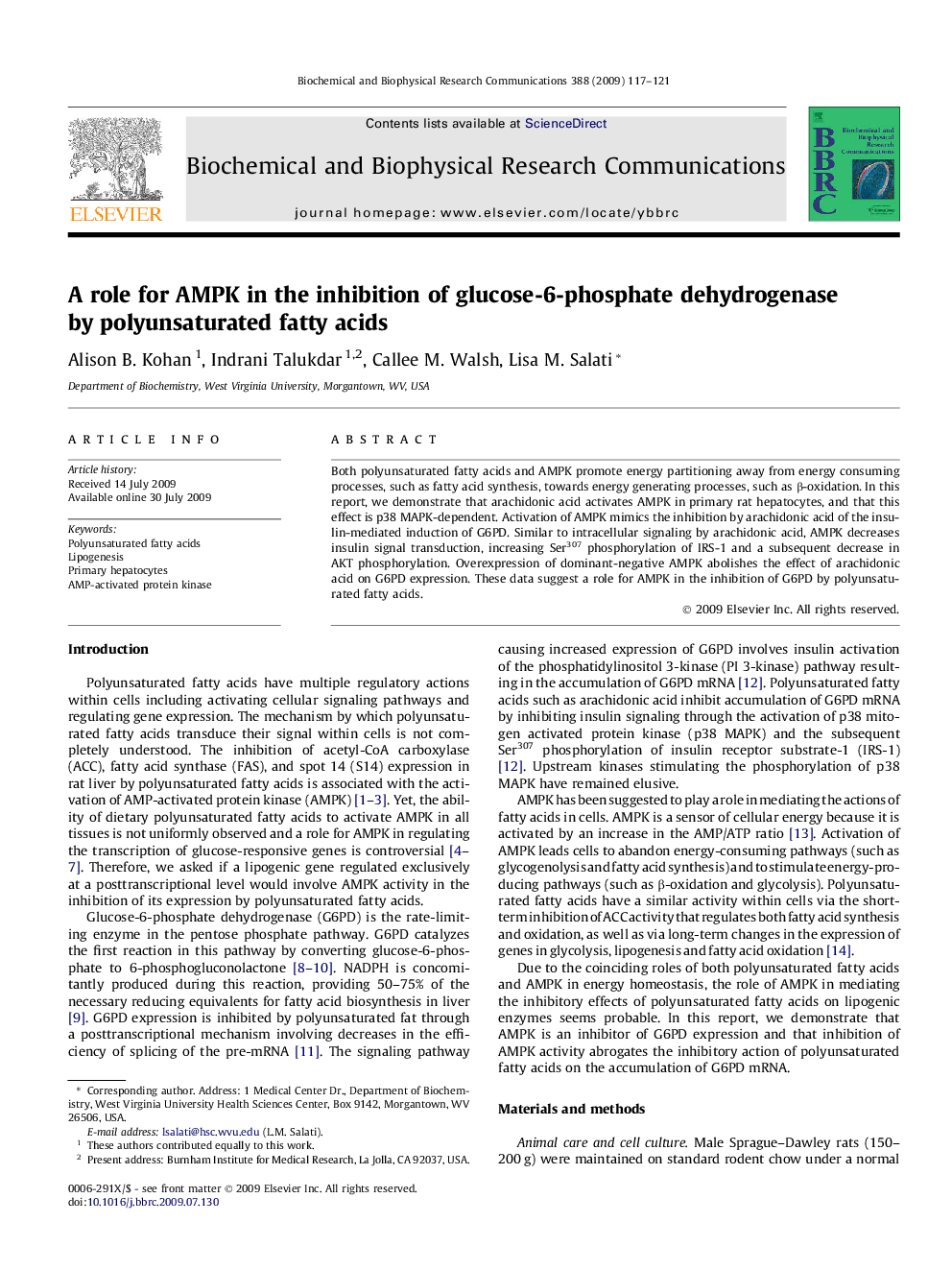| Article ID | Journal | Published Year | Pages | File Type |
|---|---|---|---|---|
| 1933638 | Biochemical and Biophysical Research Communications | 2009 | 5 Pages |
Both polyunsaturated fatty acids and AMPK promote energy partitioning away from energy consuming processes, such as fatty acid synthesis, towards energy generating processes, such as β-oxidation. In this report, we demonstrate that arachidonic acid activates AMPK in primary rat hepatocytes, and that this effect is p38 MAPK-dependent. Activation of AMPK mimics the inhibition by arachidonic acid of the insulin-mediated induction of G6PD. Similar to intracellular signaling by arachidonic acid, AMPK decreases insulin signal transduction, increasing Ser307 phosphorylation of IRS-1 and a subsequent decrease in AKT phosphorylation. Overexpression of dominant-negative AMPK abolishes the effect of arachidonic acid on G6PD expression. These data suggest a role for AMPK in the inhibition of G6PD by polyunsaturated fatty acids.
